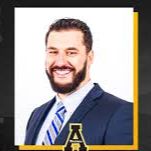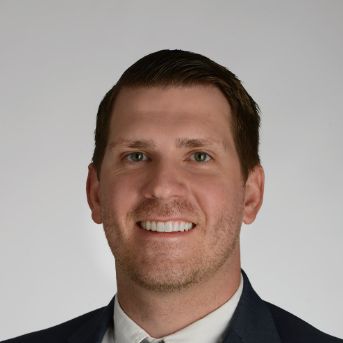Exploring Treatment Choices for Substance Abuse in Indianapolis
Exploring treatment for Substance Abuse in Indianapolis can include in-person and teletherapy, with both individual and group options to match your comfort and schedule. In-person care may be convenient if you’re near Downtown’s Mile Square, Fountain Square, or Broad Ripple, but traffic on I-65/I-70 and around the I-465 loop—plus event congestion near Lucas Oil Stadium and Gainbridge Fieldhouse—can affect travel time and parking. Teletherapy can reduce commute stress and works well if you live farther out in neighborhoods like Irvington or on the northwest side, or if you rely on IndyGo buses or the Red Line. Many people start with individual sessions to build skills and add group therapy for peer support, relapse prevention, or family involvement.
MiResource makes it easier to find a good fit by letting you filter Indianapolis providers by therapy approach (such as cognitive behavioral therapy, motivational interviewing, harm reduction, or medication-assisted treatment), accepted
insurance
, and real-time availability. You can sort by evening or weekend hours, proximity to your ZIP code or an IndyGo stop, and whether a provider offers telehealth or in-person care. The platform also helps you see which clinicians run groups, support virtual intensive programs, or coordinate with primary care. With these tools, you can quickly identify accessible options that align with your goals and day-to-day realities in Indianapolis.
Local Programs and Community Partners
Indianapolis offers a strong web of local support for people navigating Substance Abuse, from harm-reduction to recovery communities. The
Marion County Public Health Department’s Safe Syringe Access and Support program
operates across the city, while
Overdose Lifeline
—based near Midtown—provides naloxone training and statewide advocacy.
Eskenazi Health
’s Midtown locations and emergency departments connect residents with peer recovery coaches and medication-assisted treatment, and
Community Fairbanks Recovery Center
on the north side offers intensive outpatient and residential options. Peer networks like
Recovery Café Indy
near Fountain Square and neighborhood
NA
/
AA
meetings in Broad Ripple and along the Canal Walk create judgment-free spaces to rebuild connection.
Advocacy and wraparound services further anchor care close to where people live and work, from the
Damien Center
’s harm-reduction supports on the Near Eastside to housing and recovery navigation through
Horizon House
and
Wheeler Mission
near Mile Square. The
Indiana Recovery Network
(through
Mental Health America of Indiana
) links certified peer specialists with individuals in Martindale-Brightwood, Riverside, and beyond, helping bridge gaps between community resources and clinical care. These programs complement MiResource’s therapist directory by offering practical support between sessions, crisis help, and peer-led accountability, so Indianapolis residents can craft a recovery plan that fits their neighborhood, schedule, and goals. Together, they make it easier to move from first steps—like naloxone access—to sustained therapy and long-term wellness.
Urgent Help for Substance Abuse in Indianapolis
If you’re in immediate danger or experiencing an overdose, call 911 or go to the nearest ER: IU Health Methodist Hospital (317-962-2000), Eskenazi Health (317-880-0000), Community Hospital East (317-355-1411), or Ascension St. Vincent Indianapolis (317-338-2345). For 24/7 crisis support, call or text 988. Local help: Eskenazi Health Midtown Crisis Line (317-880-8485), Community Health Network 24-Hour Crisis (317-621-5700), and Adult & Child Health Crisis (877-882-5122). For treatment referrals, call SAMHSA’s National Helpline (800-662-4357). In Indianapolis, you can request the IMPD Mobile Crisis Assistance Team (MCAT) through 911 for an on‑scene mental health/substance use co-responder. For non–life-threatening needs, use nearby urgent care (IU Health Urgent Care or Community Health Urgent Care) or your primary care’s same-day clinic.
Key Insights Into Substance Abuse
Substance Abuse
refers to the misuse of substances like alcohol, prescription medications, or illicit drugs, which can affect your mood, thinking, and daily life. Common signs include strong cravings, mood swings, changes in sleep or appetite, withdrawal from friends or activities, and trouble at work or school. Understanding these symptoms matters because early recognition can prevent health risks,
relationship
strain, and safety concerns. If you’re in Indianapolis, knowing the signs can help you connect with local support and take the next step toward feeling better.
Spotting Potential Warning Signs
Noticing changes in yourself or someone you care about can feel scary, but you’re not alone—many in Indianapolis face this, and support is available. Trust your instincts and remember that early conversation and care can make a real difference.
- Sudden mood swings, irritability, or unusual bursts of energy followed by lows
- Pulling away from friends, family, or favorite activities and spending more time alone
- Changes in
sleep
or appetite, like staying up all night or skipping meals
- Missing work or school, falling grades or performance, or losing interest in responsibilities
- Physical changes such as bloodshot eyes, frequent nosebleeds, unexplained weight loss or gain, or poor hygiene
- Secretive behavior, hiding substances or paraphernalia, or unexplained smells on clothes or in rooms
- Money problems, borrowing or missing cash, or new legal issues without clear explanation
What Contributes to Substance Abuse
Substance Abuse in Indianapolis can affect anyone and often arises from a mix of factors—not from a lack of willpower or personal weakness. Understanding these influences can make the path to support and recovery feel more approachable. You’re not alone, and caring help is available nearby. Recovery is possible.
- Biological
- Family history or genetics
- Differences in brain chemistry
- Chronic pain or other medical conditions
- Psychological
- Stress,
anxiety
, or
depression
- Past trauma or difficult life events
- Coping with grief or loneliness
- Environmental
- Easy access to drugs or frequent exposure
- Peer or social pressure
- Housing instability, job loss, or financial strain
How Substance Abuse Shapes Daily Life
Substance Abuse can quietly take over your routine in Indianapolis—making it harder to get up for work, keep up with classes, or follow through on plans with family and friends. You might notice more missed shifts, tension at home, or skipping activities you used to enjoy around the city. Health symptoms and mood swings can add stress, and costs or legal trouble can pile on. Reaching out for support now can help you regain control, rebuild trust, and feel better day to day.
- Work and job performance
- School, focus, and attendance
- Family life and parenting
- Relationships and social connections
- Physical health, sleep, and energy
- Mood, stress, and mental health
- Money, housing stability, and legal risk
Effective Treatments for Substance Abuse
Evidence-based care can help people in Indianapolis reduce harm, regain stability, and reach their recovery goals. Proven treatments combine medications, structured therapies, and practical supports tailored to each person. With the right plan and a supportive team, change is possible—taking the first step to explore options is powerful.
- Medication-assisted treatment (MAT): FDA-approved medications like buprenorphine, methadone, or naltrexone reduce cravings, prevent withdrawal, and lower overdose risk when paired with counseling.
- Cognitive Behavioral Therapy (CBT): Builds skills to recognize triggers, change unhelpful thinking, and practice coping strategies to prevent relapse.
- Contingency Management (CM): Uses small, immediate incentives to reinforce abstinence and treatment goals, improving engagement and outcomes.
- Motivational Interviewing (MI): A collaborative counseling style that strengthens a person’s own motivation and confidence to change substance use.
- Community Reinforcement Approach (CRA) and Family Training (CRAFT): Increases rewarding, substance-free activities and teaches loved ones effective ways to support change.
- Harm Reduction Services: Syringe services, fentanyl test strips, and naloxone distribution reduce health risks and keep people connected to care pathways.
Quick Answers for Substance Abuse Therapy in Indianapolis
1. Can Substance Abuse happen to anyone?
Substance Abuse can affect people of any age, gender, or background, and it’s never a sign of weakness. In Indianapolis and beyond, factors like stress, trauma, chronic pain, mental health concerns, family history, and limited access to support can increase risk, but anyone can be impacted. You’re not alone—compassionate help is available, and healing is possible.
2. Is Substance Abuse just stress or something more serious?
Everyday stress usually passes with rest and coping skills, while Substance Abuse becomes more serious when substances are used to cope, tolerance grows (needing more to feel okay), cravings or withdrawal appear, or it harms health, work, or relationships. Persistent use, loss of control, or risky behaviors are signs it’s more than temporary stress. If these patterns last weeks or keep escalating, it’s time to seek support. Effective, confidential help is available in Indianapolis, and evidence-based care can help you regain control.
3. What are some misconceptions about Substance Abuse?
A common myth is that Substance Abuse is a moral failing or “choice,” when in reality substance use disorder is a medical condition influenced by biology, stress, trauma, and environment—and people deserve care, not shame. Another misconception is that someone should be able to quit with willpower alone; effective recovery usually involves evidence-based treatments, support, and time, and many people do get better. It’s also untrue that Substance Abuse only affects certain neighborhoods or backgrounds—people across Indianapolis from all walks of life can be impacted, and help is available. Harm reduction, like naloxone and safer-use education, doesn’t “enable” use; it saves lives and often opens the door to treatment when someone is ready.
4. Can Substance Abuse improve without treatment?
Some people in Indianapolis may see Substance Abuse urges lessen on their own, but that’s not common or reliable. Professional treatment greatly improves outcomes, reduces the risk of relapse, and helps you build lasting coping skills. With support, you’ll learn strategies to manage triggers, repair routines, and stay on track. Reaching out for help in Indianapolis is a strong step toward long-term recovery.
5. How do I talk about my Substance Abuse with family or friends?
It’s okay to share at your own pace—consider a simple start like, “I’m getting help for Substance Abuse, and I want to be honest with you,” and ask for what you need: “I’d appreciate support by checking in and not keeping substances around me.” Set clear limits such as, “I’m not ready to talk about details right now, but I’ll let you know when I am,” and choose a calm time and private place for the conversation. You can mention concrete steps you’re taking and offer resources they can read, like the Indiana Recovery Network, Community Fairbanks Recovery Center (Indianapolis), Eskenazi Health addiction services, or Indiana 211 for local support. Remind them that recovery is a process and you’re not alone—inviting a trusted person to a meeting or appointment can help them support you better.
6. Who is qualified to diagnose Substance Abuse in Indianapolis?
Qualified professionals in Indianapolis who can diagnose Substance Abuse disorders include physicians (primary care doctors and psychiatrists), psychologists, nurse practitioners and physician assistants, and licensed behavioral health clinicians such as Licensed Clinical Addiction Counselors (LCAC), Licensed Clinical Social Workers (LCSW), Licensed Mental Health Counselors (LMHC), and Licensed Marriage and Family Therapists (LMFT). MiResource only lists verified Indianapolis providers who hold the appropriate Indiana licenses to deliver accurate diagnoses and safe, effective treatment.
7. What usually happens in a first therapy session for Substance Abuse?
In your first therapy session in Indianapolis, you’ll start with simple introductions and an overview of how sessions work, including privacy and what to expect. You’ll be invited to share a bit about your personal history and current relationship with drugs at your own pace. Together, you and the therapist will talk through your concerns, what’s been most challenging, and what support you’re hoping for. You’ll finish by setting initial, realistic goals and a plan for next steps, so you leave with a clear, manageable path forward.













